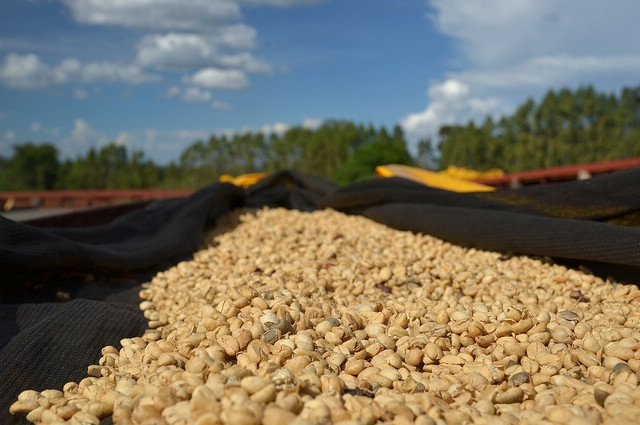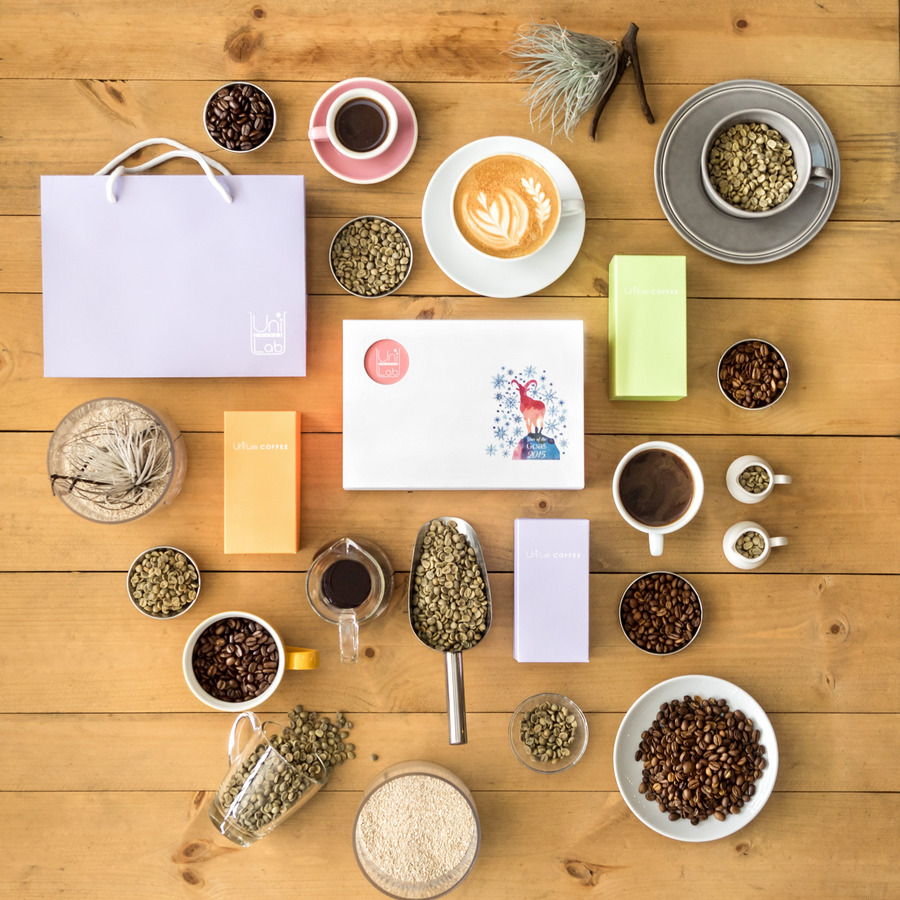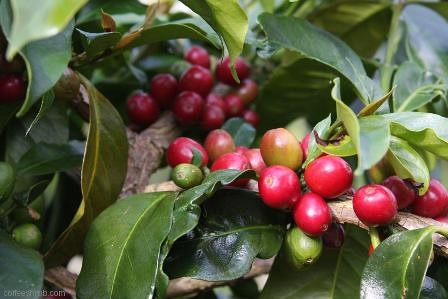China Coffee Network recommends American boutique coffee beans Coffee Raw Bean treatment introduction Solar selection of beans
Sun treatment will first identify sunken beans in the sink, that is, ripe or half-ripe beans are spread in the drying farm for natural drying. The specific time depends on the local climatic conditions, which usually takes two to four weeks. When the moisture of the coffee bean is reduced to 12%, then use a sheller to grind off the hard pulp and silver skin.
The sun treatment has a very high requirement on the climate, and if you encounter a rainy day in the sun, it will make the beans moist and moldy. When drying raw beans in the sun, the color is yellow, and the center will be brown after baking, rather than the white of washed beans. Sun beans have relatively better sweetness and mellow thickness, while less sour taste, but the quality is more unstable, there will be greater fluctuations. Due to the low cost of tanning, it is widely used not only in Ethiopia and Yemen, but also in Robbins grown in Africa and Indonesia.
1. Select beans: put freshly harvested coffee beans in the sink, ripe beans will sink, while unripe and overripe beans will float up and can be removed.
2. Drying: put the selected ripeness on the square for 5-6 days until it is fully dry. At this time, the surface of the raw bean turned dark brown and the moisture content was 13%.
3, shelling: after drying, the unbeautiful skin becomes fragile and falls off easily, which can be removed mechanically. Farms run by enterprises are all shelled by themselves, while small farms are handed over to the processing center for processing.
4. Selection and classification: enterprise farms will identify defective beans manually or mechanically, and select them. The manual selection method uses a transmission belt of about 1 meter, and several female workers sitting on both sides visually select bad beans. In some good farms, they are even selected several times until no defective beans are seen. The mechanical selection method uses mechanical discrimination to remove defective beans, followed by the classification process, which divides coffee beans into several quality grades according to the established criteria. Good coffee enters the selected coffee market, while poor coffee flows into the commercial coffee market.
5. Polishing: shelling can only remove the unattractive layer of beans. At this time, the silver film is still preserved in the outer layer of the seed, and the film must be mechanically ground.
According to the Panamanian Emerald Manor website, "Rose Summer" coffee seeds were taken from GeishaMountain (Mount Rosa) in southwestern Ethiopia in 1931, transplanted to Kenya in 1931 and 1932, replanted in Tanzania in 1936 and introduced to Costa Rica in 1953. It is unknown when they will be introduced to Jaramillo Manor in Panama. After the PricePeterson family, who only knew the Emerald Farm (HaciendaLaEsmeralda) of Panama, bought the Galamie Manor in 1996, they found that the coffee flavor on the edge of the estate was unique, so they took part in the 2004 Panama "COE" competition, never wanted to become famous, and won awards almost every year since. Later, it was identified that the variety originated from Ethiopia's "Rose Summer Mountain", so it was called "Rose Summer" coffee. Panamanian Rosa coffee once fetched a sky-high price of nearly $290 per kilogram.
The Herrera family of Hope Farm in Colombia introduced Rose Summer Coffee from Jade Manor in Panama in 2007, but after years of trial efforts, it won the first prize in the American Fine Coffee Association's Annual Bean Competition (COTY-CoffeesoftheYear) in Houston in April 2011.
Country: Colombia
Grade: AATOP
Producing area: Cauca Valley
Altitude: 1800 m
Treatment: insolation
Variety: Rose summer
Manor: hope Manor
Flavor: berries, honey, vanilla, sweet juice

Important Notice :
前街咖啡 FrontStreet Coffee has moved to new addredd:
FrontStreet Coffee Address: 315,Donghua East Road,GuangZhou
Tel:020 38364473
- Prev

Latte the classic mixture of espresso and milk Italian latte caramel latte
Latte is the transliteration of Italian Latte. Latte (CoffeeLatte) is a kind of fancy coffee. Latte is a classic blend of Italian espresso and milk. Italians also like lattes as breakfast drinks. In the Italian kitchen in the morning, coffee and milk are usually brewed on the sunlit stove. The Italian who drinks lattes, not so much him.
- Next

Americana Boutique Coffee Estate Salvador Ataisi Estate Micro Batch Wash Pacamara Pacamara
El Salvador is located in Central America, bordering Guatemala and Honduras in the north and the Pacific coast in the west and south. El Salvador is the smallest country in Central America and the most densely populated in Central America. Although El Salvador has a small territory, it has dozens of volcanoes and is the country with the highest volcanic density in the world. Therefore, it is called the country of volcanoes. whole
Related
- Does Rose Summer choose Blue, Green or Red? Detailed explanation of Rose Summer Coffee plots and Classification in Panamanian Jade Manor
- What is the difference between the origin, producing area, processing plant, cooperative and manor of coffee beans?
- How fine does the espresso powder fit? how to grind the espresso?
- Sca coffee roasting degree color card coffee roasting degree 8 roasting color values what do you mean?
- The practice of lattes: how to make lattes at home
- Introduction to Indonesian Fine Coffee beans-- Java Coffee producing area of Indonesian Arabica Coffee
- How much will the flavor of light and medium roasted rose summer be expressed? What baking level is rose summer suitable for?
- Introduction to the characteristics of washing, sun-drying or wet-planing coffee commonly used in Mantenin, Indonesia
- Price characteristics of Arabica Coffee Bean Starbucks introduction to Manning Coffee Bean Taste producing area Variety Manor
- What is the authentic Yega flavor? What are the flavor characteristics of the really excellent Yejasuffi coffee beans?

